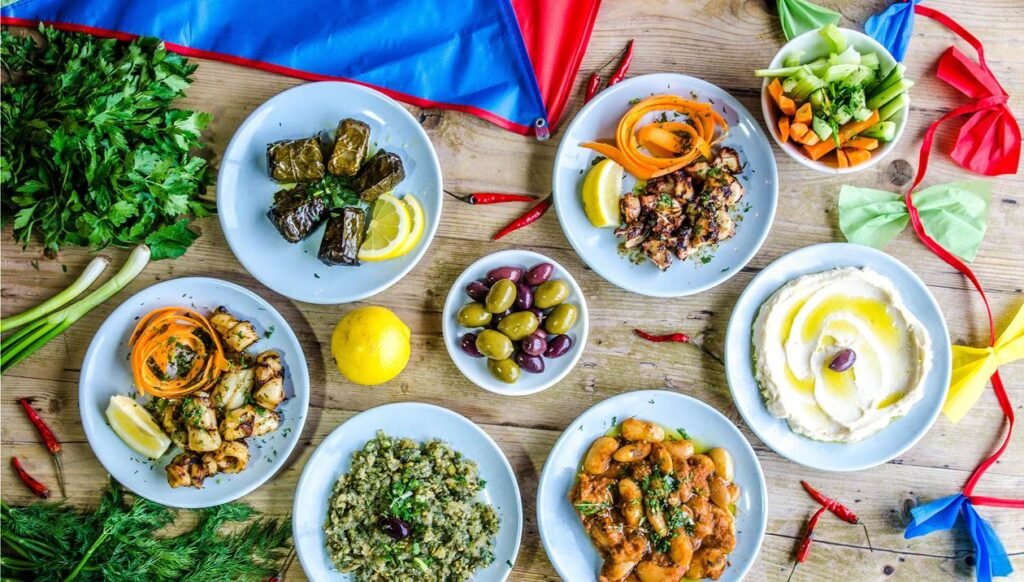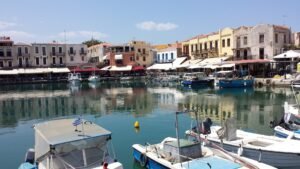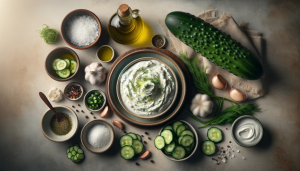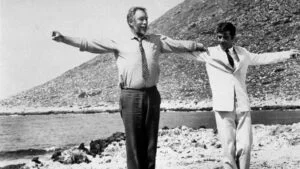The name might sound weird but really, it is not that Greeks clean up their residences on this special celebration. If you happen to be in Greece right after the Carnival season, then make sure to note the 7th week before the Greek Orthodox Easter Sunday, as this is when Clean Monday is always placed every year; this is a usual moveable feast that will introduce you to the Greek traditions and customs and make you feel like a local!
The history of Clean Monday
Clean Monday -or “Kathara Deutera” in Greek- is a feast that is related to the beginning of the Great Lent according to the Greek Orthodox Church. It is celebrated right after the end of the Carnival, and as its name suggests, it signifies the transition from feasting to fasting. On Clean Monday, people are invited to let go of their festive, teasing behavior and sinful eating habits (which include the heavy consumption of meat, dairy, and other animal-based products) and engage in the restrictions that are imposed during the period of the Great Lent. Easter is the most significant holiday of the Orthodox Church, as it symbolizes the death of the old self and the promise of a new, pure one, therefore the body must be prepared and detoxed, while it is a time for prayer and introspection.
What do we do on Clean Monday

Clean Monday, although it is a religious holiday, remains a feast! There is a variety of symbolic customs followed on that day, many of them having their routes in the long pagan past. On Clean Monday, the weather is usually sunny and warm, so many groups of families and friends take over the hills and parks for picnics! Taverns are also packed with people, and everyone enjoys the warmer days approaching. Youngsters also fly their kites up high – a nostalgic custom beloved by all the Greeks. The view of the bright blue sky filled with colorful kites of all shapes is simply wonderful! If you want to partake in the kite flying, note that there are many spots you can purchase one, even on the same day.
What do we eat on Clean Monday

If you think that Greeks don’t eat much or well on this day, well, you are dead wrong. The coming of Lent is celebrated with a variety of traditional, mouthwatering meatless dishes, many of which are particularly loved by vegetarians and vegans! Some of the most popular ones include “fasolada” (a delicious black bean soup with tomato sauce), cuttlefish and spinach casserole (seafood is allowed during the fast), “taramas” (a delicious dip made of mashed potatoes and fish eggs, way tastier than it sounds), “Lagana” (an amazing flatbread to dip into everything) as well as halva, the tahini-based dessert, so rich in fat, sugar, and taste that it would be difficult to crave a brownie afterward. Restaurants also set up a special menu for the day, which typically includes various seafood-based dishes such as fried calamari, seafood spaghetti, and grilled fish. Well, it doesn’t sound much like starving, is it? Don’t miss the chance to join Clean Monday’s festivities and experience first hand the authentic side of being a Greek – and the possible food coma.
Where to spend your Clean Monday in Greece.

Clean Monday is a Bank Holiday in Greece, thus the perfect excuse for a long weekend getaway! Here are some suggestions on where to go if you are visiting or staying in Athens during that time.
The Filopappos Hill, Over the years this, hill, which is very close to the Acropolis and offers a wide green area, has become the perfect place to spend Clean Monday enjoying a picnic with a view!
Visit the south suburbs of Attica and eat fresh fish at a seaside restaurant. Athens has a beautiful coastline, which is ideal for long walks.
Make a day trip to one of the Saronic Islands. A day tour to Aegina or a day tour to Hydra and Aegina are strongly recommended!
🚗 Car Rental in Crete — Best Local Prices, Island-Wide Delivery
Explore the whole island of Crete at your own pace. We deliver your rental car wherever you are — airports, ports or your hotel — across all of Crete.
- ✅ Chania Airport & Heraklion Airport — fast pickup, no queues
- ✅ Chania Port & Heraklion Port — car ready when your ferry arrives
- ✅ Hotel delivery anywhere in Crete — Chania, Heraklion, Rethymno, Agios Nikolaos
- ✅ Economy to 9-seaters — manual, automatic, SUV available
- ✅ Free cancellation — book with confidence
Get Your Free Car Rental Quote — Delivered Anywhere in Crete
🚗 Get Free Quote — Car Hire CreteNo credit card required • Instant quote • All airports, ports & hotels
Local tip: As a local car rental company based in Chania, Crete, we deliver island-wide — airports, ports and hotels. The car rental link supports our site at no extra cost to you.




